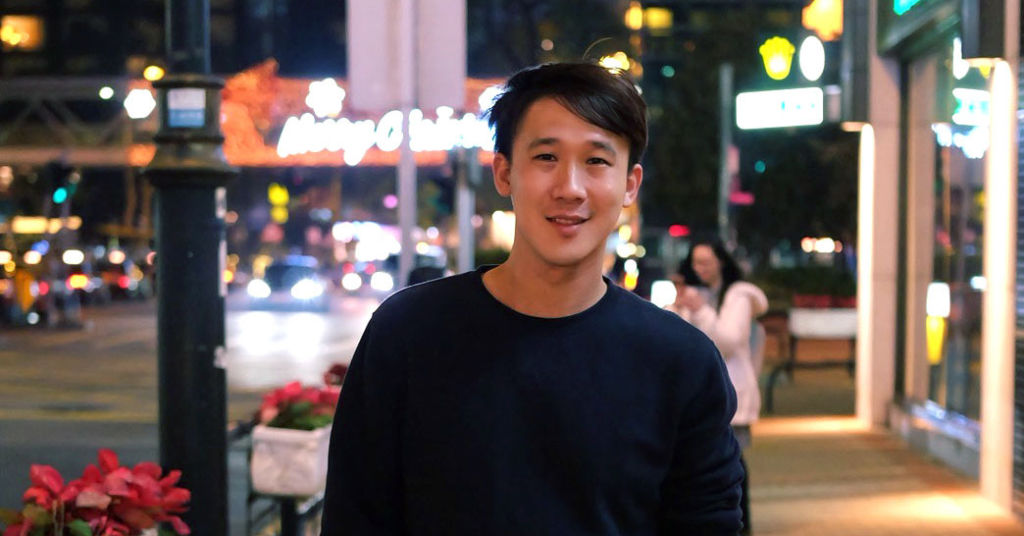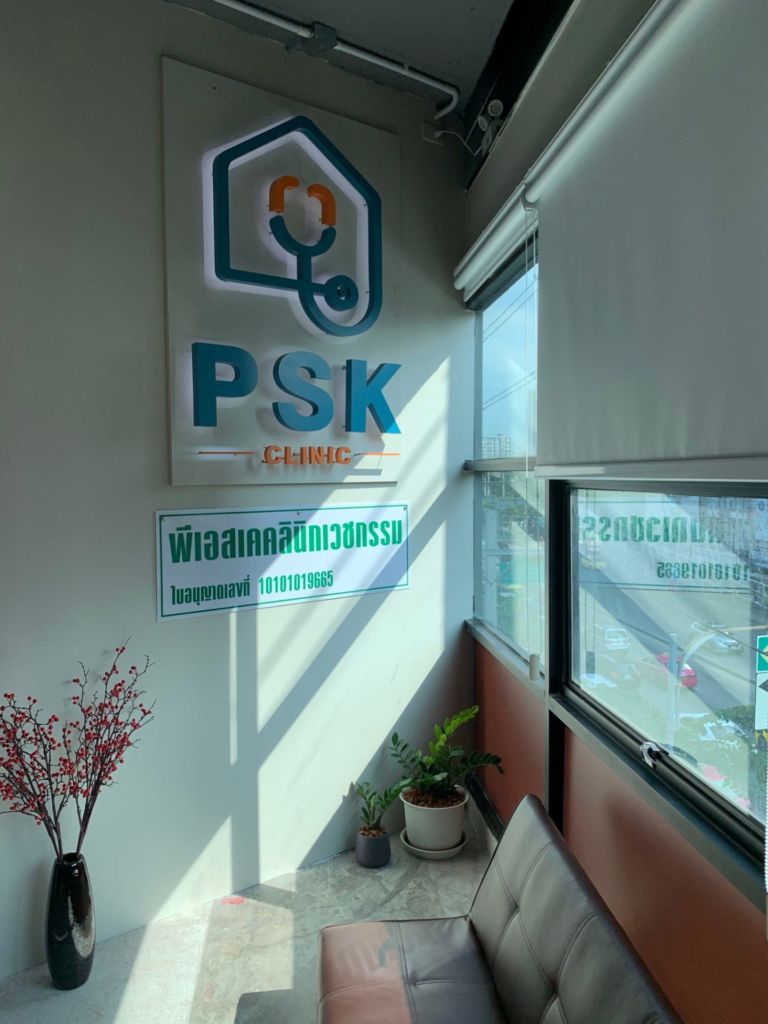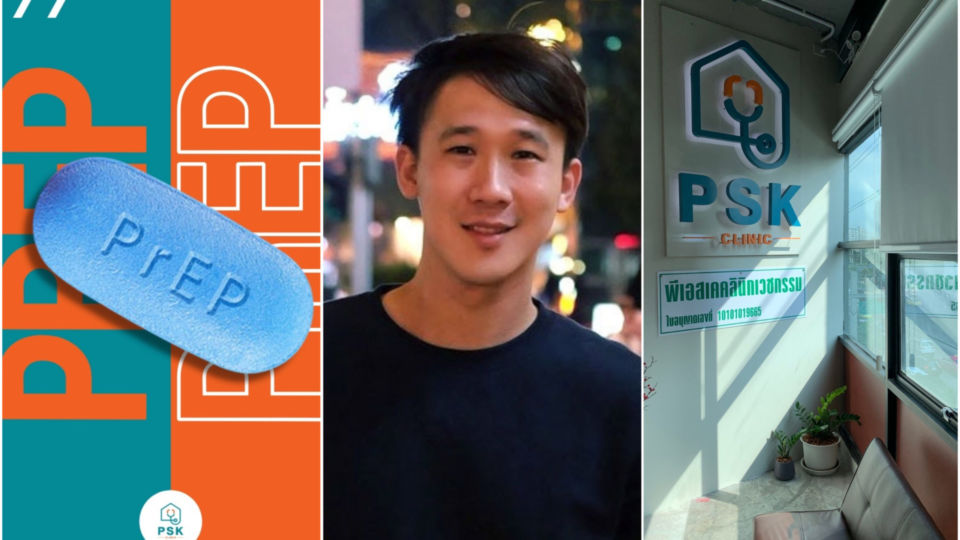Over a decade ago, Pongsakorn Surapuchong was a volunteer dermatologist at the Thai Red Cross’s Anonymous Clinic. It didn’t take long for him to notice how HIV/AIDS patients were left out of the loop.
“Patients who are testing for AIDS and HIV usually share one concern: they want their personal information to be as private as possible,” Pongsakorn said. “But most clinics might not be able to comply with their wishes.”
Since then, Pongsakorn has been dedicating his medical expertise to raising awareness on sexually transmitted diseases to help remove the stigma. Earlier this year, he opened his first clinic, PSK Clinic, where patients can go anonymously to receive counseling and testing — and forgo medical records. At the clinic, an HIV test costs THB600.
Pongsakorn wanted his clinic to be a place that provides social support and fights against HIV-related stigmas regardless of people’s gender identity.
“We need to be more than a sexual health clinic,” Pongsakorn said. “We suppose everyone will feel free to come to the clinic. We also need to decrease the stigmatization and discrimination of people with HIV and LQBTQ+.”

We sat down with Pongsakorn about his clinic and how he believes it could be the model for patients to reach out for treatment more effectively.
Why does your clinic allow patients to get their test without revealing themselves?
We got this idea from the Anonymous Clinic but we want to make it more practical. Patients who are testing for AIDS and HIV usually share one concern: they want their personal information to be as private as possible. But most clinics might not be able to comply with their wishes, especially when these clinics are state-funded. True, clinics like the Anonymous Clinic may identify patients with telephone numbers or emails, but if people want to have a free blood test, the clinic still requires ID and will record the results.
Many patients are still reluctant to reach out for medical treatment and diagnosis, since there’s a possibility that the result — when they are HIV positive — will affect their work and personal life, or even their insurance. So, we think that foregoing the identification process will make people feel more secure and comfortable enough to have their tests.
Any difficulty as a medical provider?
Since the Anonymous Clinic has been doing something similar for 30 years, I don’t think it’s any harder to provide counseling services and tests this way. As a medical provider, I believe we must have trust in our patients, that they’re truly concerned and in need of our help, that they seek our help with no hidden agenda. True, people can find loopholes to exploit this. I heard from the Anonymous Clinic’s staff that some people try to have another person do blood tests for them. But we can screen their identities with their ID cards — just as a precaution since we don’t actually record anything.

Do you think people are becoming more comfortable receiving tests like this, compared to the past?
Younger people show more confidence and become well-informed about the disease. Some of them may still be concerned due to the old stigma and media representations. But overall, it’s progress.
We must have trust in our patients, that they’re truly concerned and in need of our help, that they seek our help with no hidden agenda.
What are some of the common misconceptions people still have about HIV and AIDS in Thailand?
“You’ll die in 5 to 10 years if you get AIDS,” is something people still believe, even today. With current medical breakthroughs — if we look from the global scale — the technology has become so advanced that helping people survive from disease may no longer be our priority. Priorities have shifted to how people can live with AIDS when they grow older, or how they can handle comorbid patients with heart diseases or dementia. People who are HIV positive aren’t going to die in 5 to 10 years. They can live up to or more than 80. And they will.
What can help shatter the stigma and old misconceptions attached to the disease?
Several things need to be done — be it from society or the medical profession. Sexually transmitted diseases have been brought to light and conversations occurred, but it’s still the harsh reality that even among healthcare professionals discrimination is still very high. Some still associate the disease with a patient’s carelessness. Questions like “Why didn’t you use protection?” or “How did you let yourself get it?” are still common.
One patient when I was treating him told me he was surprised that I didn’t scold him like other doctors did. Sexually transmitted diseases like AIDS or HIV aren’t something people want in the first place. Accidents happen. Even skillful chefs can get a cut. So can those who have sex. As a medical professional, we should admire their efforts and the sense of responsibility that they come to us with. We should treat them like any other patients. Our job is to help them, not to judge them — especially when we don’t have a full understanding of how they live their lives or what they’ve been through.
PSK Clinic is located on the fourth floor of the Move Amaze building on Soi Lat Phrao 19 in Bangkok’s Chatuchak district. It’s reachable via MRT Lat Phrao.




